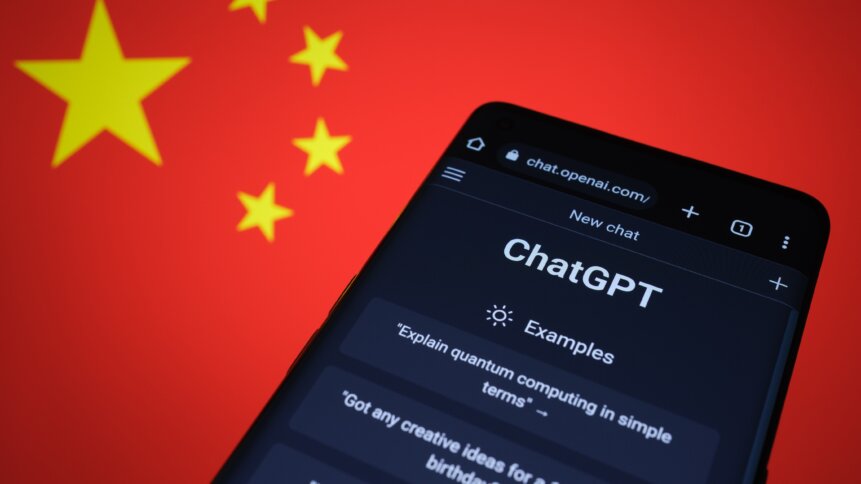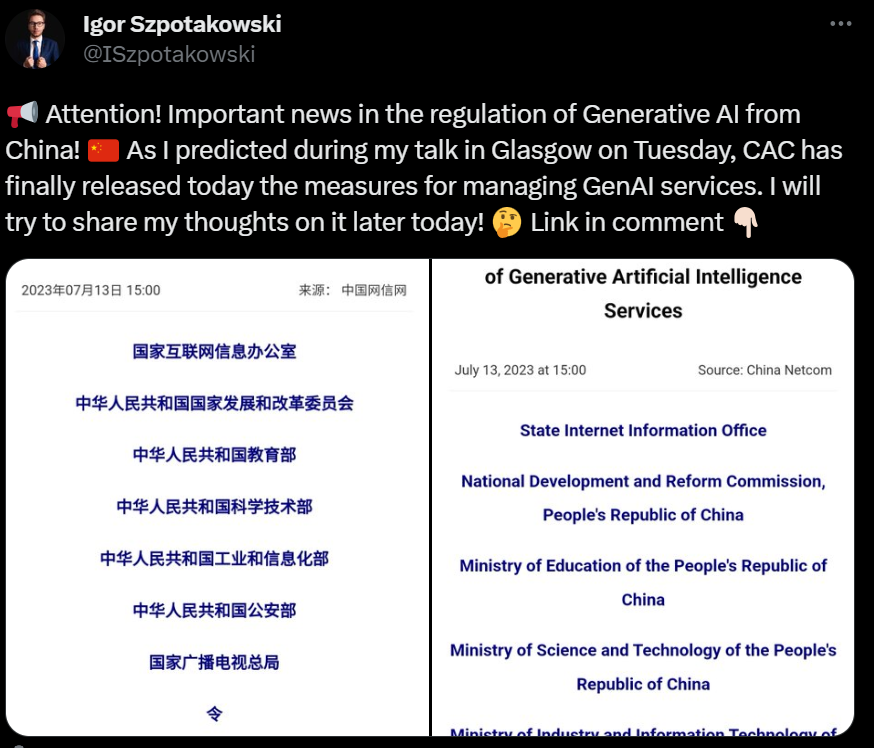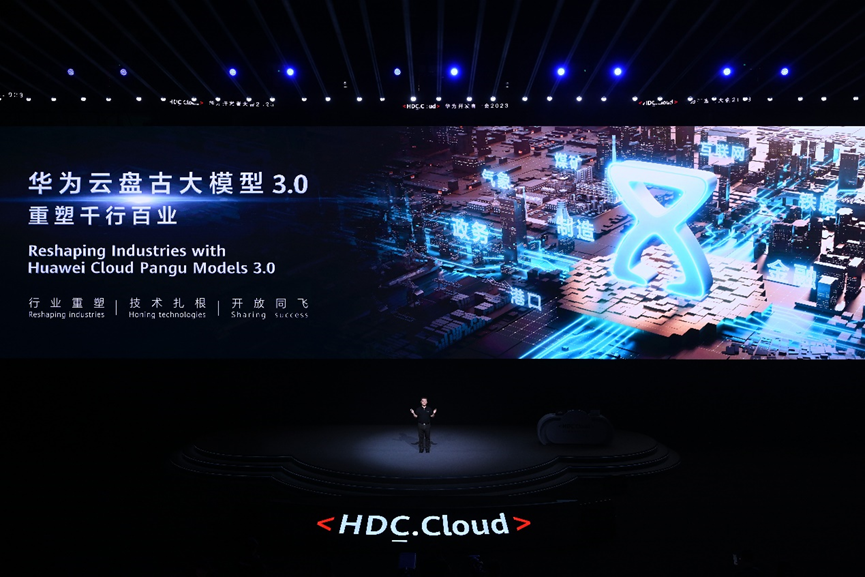China finalizes rules on generative AI amidst a rush of product launches

|
Getting your Trinity Audio player ready...
|
- China wants generative AI services to adhere to socialist principles while encouraging industrial use of the technology.
- Alibaba showcased an AI image generator named Tongyi Wanxiang at the World Artificial Intelligence Conference in Shanghai.
- Huawei demonstrated the third iteration of its Panggu AI model at the start of its three-day annual developer conference recently.
A couple of days ago, China became the first country to roll out some of the world’s earliest and most detailed regulations governing artificial intelligence (AI). It is more surprising that the authorities have softened their stance from the first draft, signaling Beijing’s intention to balance encouragement for companies to develop the technology against its desire to control content.
The nation’s top internet watchdog, the Cyberspace Administration of China, released the latest version of its AI guidelines on July 13. Notably, some restrictions from the initial draft, which was first published in April and open to public comment, have been removed or clarified. The rules came a week after Chinese tech giants, Alibaba and Huawei, unveiled their generative AI products.
Other Chinese internet companies—including Baidu and JD—have also announced their AI bots to rival OpenAI’s ChatGPT. The rules are set to take effect on August 15. The guidelines are only for companies making AI products for the public; others developing machine learning technology need not be concerned.
The whats and hows of the generative AI ruling by China
The new rules indicate that generative AI programs must “adhere to core values of socialism” and cannot be used to attempt to overthrow the state power of the socialist system. Algorithms that can influence public opinions, the rules say, must be registered with the relevant authority.

Generative AI ruling by China. Source: Twitter
Generative AI service providers should also obtain an administrative license by the law, although the document doesn’t specify who is required to do that. Currently, the rules will only apply to services available to the general public in China. Technology that overseas users are using is exempt.
Regarding user protection, the rules stipulate that algorithms must not discriminate based on ethnicity, gender, age, occupation, or health and should not be used for anti-competitive behavior.
Service providers are encouraged to create an anti-addiction system for underage users, similar to those used in video gaming. Language in the first draft said fines of no less than 10,000 yuan (US$1,400) and no more than 100,000 yuan (US$14,000) would be imposed. In the latest version, the language on fines was removed.
The previous draft said that providers of generative AI services must “be able to guarantee the authenticity, accuracy, objectivity, and diversity of the data.” In the latest version, the language was refined to say they must “take effective measures to improve the quality of training data and enhance the authenticity, accuracy, objectivity, and diversity of training data.”
According to the rules document, the state “encourages the innovative use of generative AI in all industries and fields” and supports the development of “secure and trustworthy” chips, software, tools, computing power, and data sources. China also wants its tech companies to participate in the “formulation of international rules and standards” about generative AI.
Tongyi Wanxiang: An AI image generator by Alibaba
At the World Artificial Intelligence Conference, which began on July 6 for three days in Shanghai, Alibaba’s subsidiary, Alibaba Cloud, presented an image generator. The generator, Tongyi Wanxiang, creates images in several styles, including sketches or 3D cartoons, responding to user commands in English and Chinese.
For context, Tongyi Wanxiang is powered by Alibaba Cloud’s proprietary large model Composer, a text-to-image diffusion model capable of generating photo-realistic images given any text input. The AI tool will initially only be available to enterprise customers in beta form.
“High-quality generative AI imagery will become more accessible, facilitating the development of innovative AI art and creative expressions for businesses across a wide range of sectors, including e-commerce, gaming, design, and advertising,” Jingren Zhou, CTO of Alibaba Cloud Intelligence, said.
The AI tool by Alibaba Cloud will rival the likes of Midjourney and Stable Diffusion, but Tongyi Wanxiang will be particularly adaptable to companies’ needs in the world’s second-largest economy. One of its earlier generative AI models, Tongyi Qianwen, has amassed over 300,000 beta testing requests since its launch in April.
Alibaba Cloud has partnered to build customized AI models for industry-specific applications. Alibaba Cloud also took the stage to launch ModelScopeGPT. This framework uses large language models in Alibaba’s open-source tech community, ModelScope, as an interface to link together various AI models to perform tasks more efficiently.
“Many small and medium-sized enterprises lack the technical capability and know-how to grasp the opportunity created by artificial intelligence (AI) advances. Alibaba Cloud is building a suite of digital tools that can help them,” the tech giant said.
Huawei Cloud Pangu Models 3.0 and Ascend AI cloud services
As for Huawei, the company took the chance at its annual developer conference on July 7 to exhibit the third iteration of its Panggu AI model. Huawei said its Pangu 3.0 model differentiates itself from many other applications by focusing on serving industry rather than generating content.

Zhang Ping’an, Executive Director of Huawei and CEO of Huawei Cloud, announcing Pangu Models 3.0. Source: Alibaba Cloud
“Pangu Models 3.0 will focus on building up core competitiveness and helping customers, partners, and developers operationalize AI and drive real value creation across industries,” Zhang Ping’an, Huawei’s Executive Director and CEO of Huawei Cloud said during his keynote speech at the HDC.Cloud 2023.
Huawei also shared that the model aims to improve the efficiency of safety inspection for freight train carriages and AI support for local government services. To top it off, the Pangu 3.0 model seeks to provide more accurate weather predictions. Huawei Cloud reported that Pangu-Weather, its AI weather prediction model, demonstrated higher precision than traditional numerical weather forecast methods.
A statement by Huawei indicated that Pangu Models 3.0 are available in different sizes: 10 billion-, 38 billion-, 71 billion-, and 100 billion- parameters, meeting diverse customer needs and other standards on latency and response times.
With Ascend AI cloud services, a single compute cluster can provide 2,000 petaFLOPS of compute capacity, and a 1,000-card cluster can train a multi-billion parameter model for an uninterrupted 30 days. “More reliable AI computing power has helped make large models more accessible than ever to industry customers,” Huawei added.










